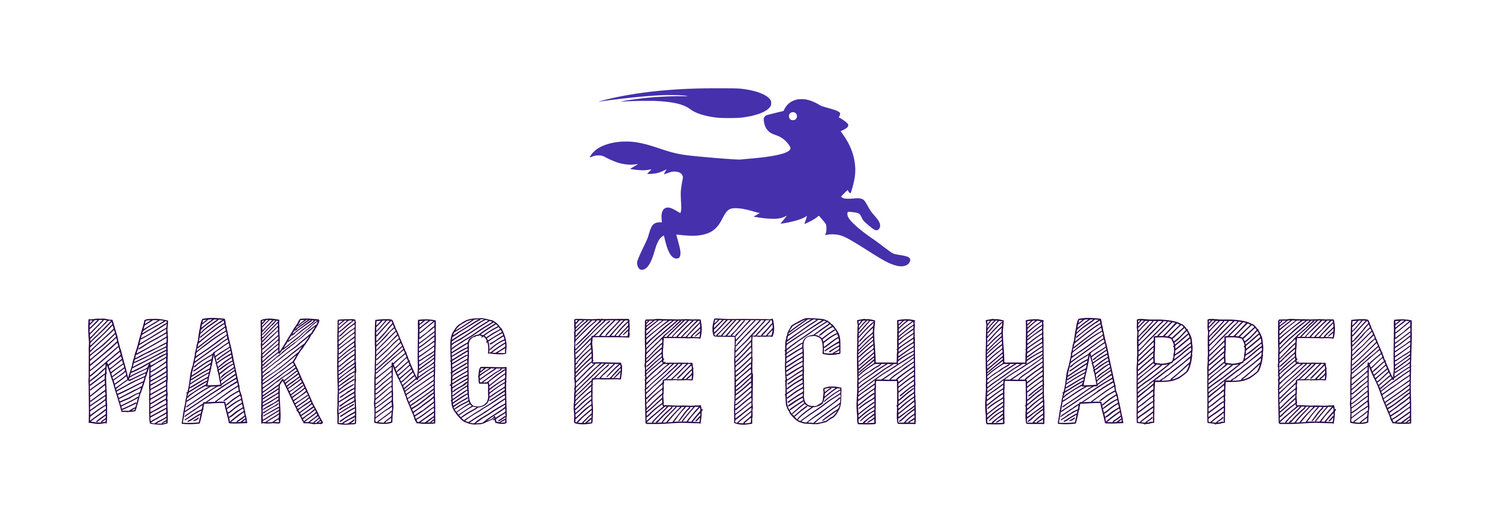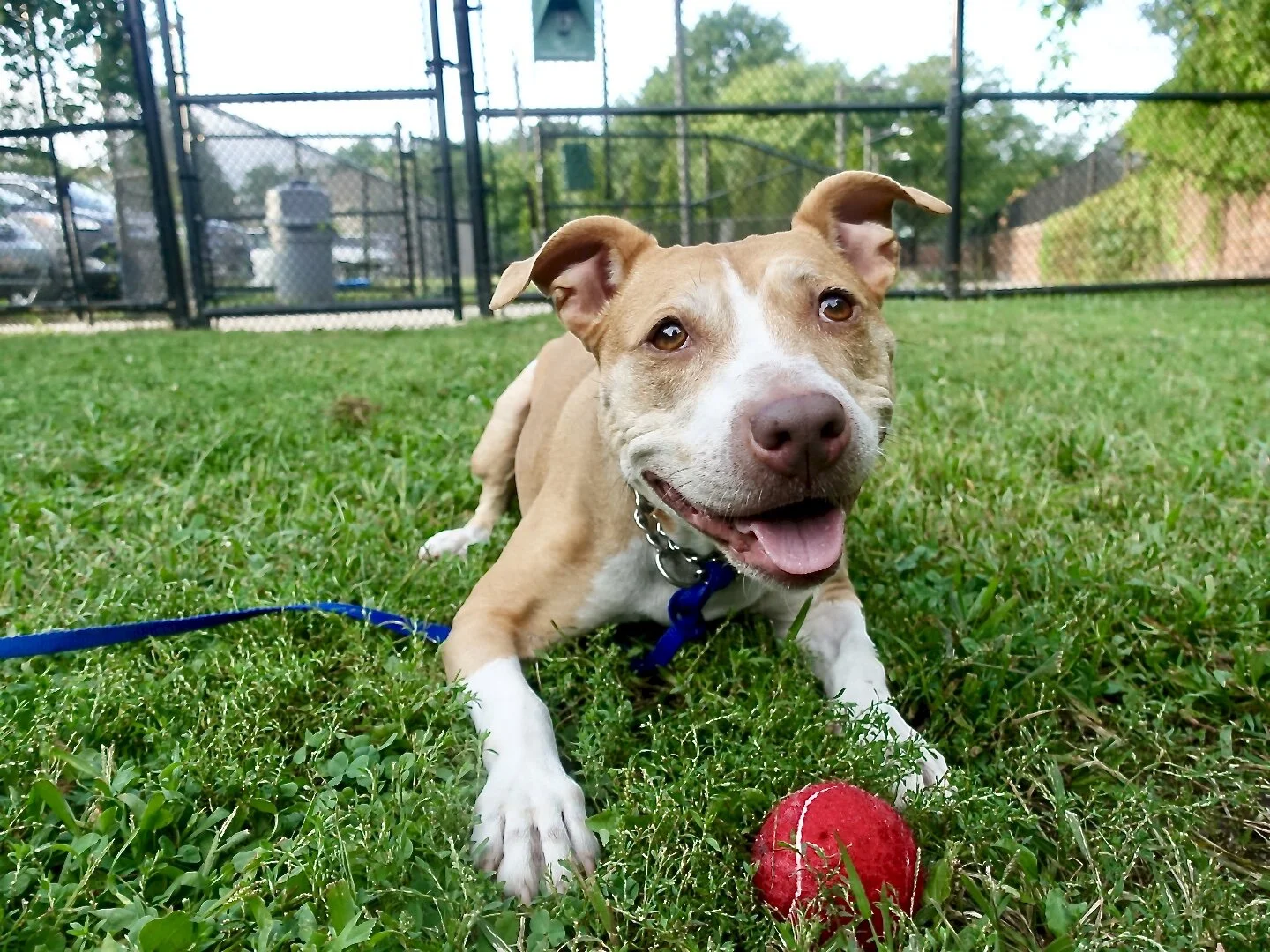Your New Puppy is not a Buffet
/Congratulations! You just brought home a new bundle of smushy, fluffy joy. So now what? There are thousands of articles, books, and pieces of advice—solicited or otherwise—that tell you how to raise your puppy right. Even a seasoned dog owner can easily become engulfed by the torrent of contradicting dos and don’ts. The stakes are high and so is the tidal wave of misinformation. But when you finally emerge, gasping for air, you’re likely to remember at least one major buzzword—socialization.
So what exactly is socialization? Simply put, it’s the process of preparing your pup to feel comfortable in a variety of situations and when interacting with other animals and people. Like a newborn baby, your puppy is experiencing everything the world has to offer for the very first time. Car horns, the clatter of pots and pans, and even balled up newspaper can be new and scary. To ensure that she becomes accustomed to these everyday objects or activities, it is your responsibility to introduce them in a safe, positive setting. Careful planning during this critical period of discovery helps to forge a well-rounded, confident adult.
As you introduce your puppy to all of the sounds and sights she’ll encounter, it’s essential to acknowledge that socialization and mere exposure are not the same thing. Effective socialization does not rely on experiences alone. Each new item or event must create a positive association. The erratic swing of a broom may seem threatening until you couple it with boiled chicken. A roaring vacuum is far less terrifying when she gets to enjoy a Kong in the safety of her pen. As your pup gains confidence, you are preparing her for a lifetime of tranquility while you etch away at the blanket of fur that now covers everything you own.
The same principle applies to socialization with people. Taking your pup to a parade may ensure maximum exposure to strangers, but overwhelming her can actually cause more damage than good. This is where the buffet analogy comes into play. Your puppy is not a willing participant in this all-you-can-pet special that every “dog lover” seems to think is their natural right. Few dogs actually enjoy being hugged by their owners, let alone by a random stranger. If passerby are constantly making her feel uncomfortable during this critical period, she will learn to defend herself with whatever means necessary. As her teacher and advocate, it is your job to step in. If you can overcome the cultural stigma that all dogs are public property, you can control the quantity and quality of your puppy’s interactions. By keeping strangers’ daunting hands away, you help to prevent your dog from developing fear-based reactivity or aggression later in life.
It’s also important to monitor her interactions with guests inside the home. If your boisterous Uncle Peter corners your puppy, bellowing in her ear and hoisting her into the air to give her a sloppy, unsolicited smooch, she learns that Uncle Peter’s presence leads to bad things. Just like with the outdoor buffet enthusiasts, this experience can easily develop into a negative association with any stranger who enters the house. While you may not be able to keep Uncle Peter from visiting, plan ahead and have tons of string cheese and frozen treats prepared. As soon as your puppy lays eyes on the formidable person, she is rewarded with an onslaught of mozzarella. Maybe you can even sway him to toss her a few treats and/or interact more politely. While prevention is preferable, positive reinforcement helps her tolerate unavoidable, inappropriate interactions. And to offset this unnerving stranger, make sure to invite calm, attentive friends over too. These respectful guests, who wait for your puppy to initiate contact, will help her learn that—for the most part—strangers are good.
Finally, it’s important to recognize that individuals eager to help themselves to your puppy are not limited to exuberant uncles. Other dogs are perhaps the worst offenders during the socialization period. Because your puppy is just learning about other dogs, it’s essential that you avoid possible negative interactions. Unfortunately, there are tons of dogs who behave aggressively, or even just inappropriately, towards their canine counterparts. Whether they have had altercations that left them behaviorally scared or simply weren't socialized properly as puppies, these dogs will not teach your pup what you want her to learn. In order to help your puppy create a positive association with other dogs, it’s essential that you carefully pick the interactions she has. Sorry folks, that means no dog parks. Where unsupervised dogs run rampant, so do bad behavior and dog fights—not to mention germs!
Instead, set up one-on-one playdates with another young dog that mimics your puppy’s play style. Start with an on-leash greeting and a tandem walk around the neighborhood. Once both dogs are displaying friendly body language—bowing, mid-level wagging tails, loose and wiggly bodies—you can let them play in a neutral, supervised space. If these meets are going well, introduce your puppy to well-mannered, tolerant, adult dogs. The ideal candidate can withstand puppy antics without being a total pushover. While playing, adult dogs will try to rectify a puppy’s inappropriate behavior by curling a lip, growling, or air snapping. These corrections teach the puppy good manners and serve a function only another dog can provide. Despite the importance of these interactions, make sure to keep a close eye on body language during play, since the same signals can also indicate that one or both dogs is no longer having fun. As with any step during socialization, if your puppy displays signs of discomfort or fear, immediately remove her from the situation. Try not to be too hard on yourself—you are both learning! Just focus on altering the environment to ensure a more positive experience next time.
Dogs communicate with subtle signs, and your puppy is on her way to speaking the canine language! As she interacts with friendly strangers, playful dogs, and exciting novelties like bicycles and rain puddles, her world expands exponentially. Despite the high stakes and competing literature, socialization is a time for exploration and creativity. Your puppy is eager to eat, and what you choose to serve will define her world for years to come. If you can forgo the unpredictable buffet in lieu of carefully-crafted, bite-sized experiences, you’ll soon be rewarded with a happy best friend who’s down for just about anything.
If you’re looking for personalized help setting your puppy up on the right foot, check out our Puppy Essentials training options!





